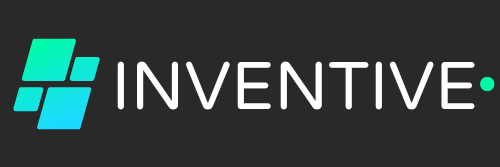GCP vs. AWS: Which Cloud Platform Is Best for Your Business in 2024?
Compare features, pricing, and performance to make the right cloud choice for your enterprise
In today’s digital landscape, cloud computing has become the foundation for innovation across every industry. As businesses increasingly rely on cloud services, two platforms emerge as clear leaders: Google Cloud Platform (GCP) and Amazon Web Services (AWS). Each offers unique benefits and capabilities that can significantly impact your operations and competitive advantage.
This comprehensive comparison will help you understand the key differences between GCP and AWS, examining their strengths, market presence, features, and pricing to guide your cloud platform decision.
Market Presence and Global Reach
Amazon Web Services firmly holds the lion’s share with approximately 50% of the cloud market. Since launching in 2006, AWS has grown into a global infrastructure powerhouse, operating 108 Availability Zones across 34 regions. This extensive reach ensures high availability and low latency for users worldwide.
Google Cloud Platform, while newer to the enterprise cloud scene, has secured a significant 28% market share. GCP operates 121 Zones across 40 Regions, leveraging Google’s advanced engineering and data analytics capabilities. GCP distinguishes itself through innovations in machine learning, artificial intelligence, and big data processing.
💡 Key Insight: While AWS leads in market share and global infrastructure, GCP is rapidly gaining traction by leveraging Google’s technological expertise in AI, machine learning, and data analytics.
Compute Services Comparison
AWS Elastic Compute Cloud (EC2)
AWS EC2 provides a comprehensive selection of instance types, enabling precise resource allocation for workloads of all sizes. From small applications to large-scale distributed systems, EC2’s integration with the broader AWS ecosystem (S3, CloudWatch, RDS) allows for streamlined setup and management of complex deployments.
Google Compute Engine and Kubernetes
GCP shines with containerized applications through Google Kubernetes Engine (GKE). As the original developer of Kubernetes, Google provides an intuitive, deeply integrated container orchestration experience. GKE supports automatic scaling, integrated load balancing, and self-healing capabilities for high-availability containerized workloads.
For traditional virtual machines, GCP Compute Engine offers extensive customization options, allowing fine-tuned resource allocation that can drive significant cost efficiencies for long-running applications.
Storage Solutions
Object Storage: S3 vs Cloud Storage
AWS S3 remains the industry leader with extensive storage classes from S3 Standard for frequently accessed data to S3 Glacier Deep Archive for long-term storage. S3’s comprehensive feature set and broad integration make it suitable for everything from simple storage to complex data lakes.
GCP Cloud Storage excels with competitive pricing and robust multi-region support. With storage classes like Nearline and Coldline, GCP offers low-cost options without sacrificing access speed, making it ideal for big data storage and analytics applications.
Block Storage Performance
AWS EBS supports up to 64,000 IOPS on io2 volumes, making it highly suitable for transactional databases. Google Persistent Disk achieves impressive performance with up to 350,000 IOPS for read-heavy applications and 1,200,000 MB/s throughput on multi-attached SSDs.
Database Services
AWS offers extensive database support through Amazon RDS (supporting MySQL, PostgreSQL, Oracle, SQL Server, MariaDB, and Aurora) and DynamoDB for NoSQL applications requiring millisecond response times. Amazon Aurora provides cloud-native features like auto-scaling and high-performance replication.
GCP specializes in analytics-focused databases with Cloud SQL for relational needs and seamless BigQuery integration. Bigtable excels at time-series and wide-column data structures, while BigQuery’s serverless, petabyte-scale capabilities make it powerful for large-scale analytics workloads.
🔍 Database Decision Guide: Choose AWS for broad database engine compatibility and transactional processing. Select GCP for analytics-heavy workloads and seamless integration with big data tools.
Pricing and Cost Optimization
AWS Pricing: Offers flexible pay-as-you-go models with Reserved Instances for long-term commitments and Spot Instances for cost-effective usage of unused capacity. This structure works well for predictable workloads and organizations that can plan resource usage in advance.
GCP Pricing: Features competitive, transparent pricing with per-second billing for more precise cost management. Sustained Use Discounts automatically apply for consistent usage, and Committed Use Discounts provide savings without upfront commitments.
Both platforms offer generous free tiers, though AWS emphasizes breadth of services while GCP focuses on ongoing access to core resources for experimentation and development.
Security and Compliance
AWS operates under a shared responsibility model with extensive compliance certifications (ISO, GDPR, HIPAA) and advanced security features like AWS IAM, dedicated hardware security modules (HSM), and comprehensive encryption options. This makes AWS particularly attractive for heavily regulated industries.
GCP leverages Google’s security expertise and machine learning for advanced threat detection and anomaly identification. With transparent activity logs, audit trails, and the Security Command Center for centralized multi-cloud security alerting, GCP provides excellent visibility into security events.
Special Features and Innovation
AWS Advantages
- AWS Lambda for serverless computing
- CloudFront global content delivery network
- AWS Outposts for hybrid cloud solutions
- Extensive marketplace with thousands of software integrations
GCP Advantages
- Advanced AI and machine learning capabilities with TPUs
- BigQuery for serverless, petabyte-scale analytics
- Native Kubernetes integration through GKE
- Strong commitment to open-source technologies
- Excellent integration with Google Workspace
Making Your Decision: Which Platform Is Right for You?
Choose AWS if you need:
- Extensive service portfolio and mature ecosystem
- Strong compliance and security for regulated industries
- Global infrastructure with the broadest regional coverage
- Flexible instance types and comprehensive integration options
- Established marketplace with extensive third-party integrations
Choose GCP if you prioritize:
- Advanced AI, machine learning, and data analytics capabilities
- Cost-effective pricing with automatic discounts
- Kubernetes-native containerized applications
- Integration with Google Workspace and tools
- Commitment to sustainability and environmental responsibility
💼 Enterprise Tip: Many organizations adopt a multi-cloud strategy, using AWS for broad enterprise applications and GCP for data analytics and machine learning workloads. This approach leverages the best of both platforms.
Elevate Your IT Efficiency with Expert Solutions
Transform Your Technology, Propel Your Business
Unlock advanced cloud technology solutions tailored to your business needs. At InventiveHQ, we combine industry expertise with innovative practices to enhance your cybersecurity, streamline your IT operations, and leverage cloud technologies for optimal efficiency and growth.
